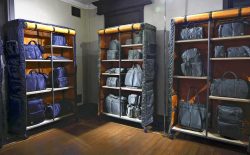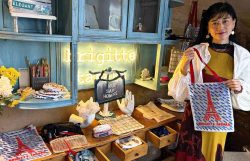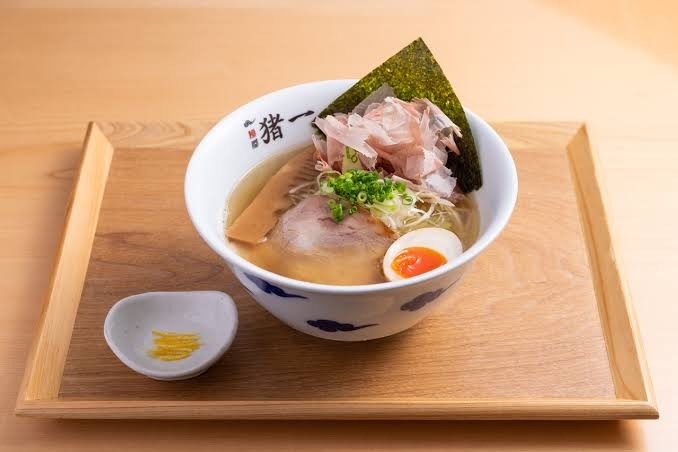
A ramen bowl at Menya Inoichi
12:00 JST, March 3, 2023
Japan’s food industry has been badly hit by the pandemic. Many famous restaurants have shut down and operating companies have been forced to file for bankruptcy. Now that novel coronavirus infections have decreased, however, there’s a feeling among some that this is actually a good time to break into the restaurant business. Even those in the fashion world seem to have caught a whiff of opportunity in the changing winds.
On Sept. 30 last year, Sazaby League, Ltd. acquired all of the shares for SFP Diners Co., the operator of ramen restaurant Menya Inoichi, which opened in 2013 in Kyoto. The shop takes pride in its clear, 100% seafood-based broth, prepared by blending together several different types of dried seafood and extracting the umami at a low temperature. No meat other than seafood is used in the broth. The shop also has been selected for Michelin’s Bib Gourmand, the reasonably priced version of the Michelin Guide, for eight consecutive years since 2016, and it now has a sister ramen restaurant, Menya Inoichi Hanare, just a few blocks away from the original location.
Sazaby League started off in fashion. But it was this same company that helped Starbucks succeed in Japan. In 2014, Sazaby League sold 39.52% of its shares in Starbucks’ Japanese subsidiary to the U.S. company for about ¥55 billion. Sazaby League operates restaurants and food-related shops such as Afternoon Tea, Akomeya Tokyo, Kihachi and Shake Shack. So it is no surprise that the company has acquired a ramen shop in Kyoto. Rather, the question is why now? Everyone knows that the ramen industry in Japan is fiercely competitive.
Sazaby League’s brands span every sort of lifestyle industry. The company has an excellent nose for what has potential and what will next be in vogue. Ordinary companies have no chance of achieving such sensitive instincts. The fact that Sazaby League bought up the Kyoto shop likely means that there was a big business opportunity to be had. Ramen used to be a cheap, quick meal. Lately, however, inflation has driven even the cheapest ramen on the menu to ¥1,000 or higher at some restaurants, including at Menya Inoichi, where the cheapest bowl, dashi soba (dashi ramen), will set you back ¥1,200. Maybe Sazaby League judged that a new era has come for ramen and that the prices at high-end ramen restaurants like Menya Inoichi could be hiked as high as ¥1,500 or even ¥2,000.
While nothing is yet set in stone, Menya Inoichi will probably have a Tokyo branch soon, followed by shops nationwide and perhaps even worldwide. Far more potential exists for ramen restaurants to go global than fashion or apparel companies, with one hardly needing to mention the successful example of the Ippudo ramen chain, now a listed company by the name of Chikaranomoto Holdings, Co.
From shoe pushing to rice peddling
For the past 20 years, ABC-Mart, Inc., has led the so-called “sneakers revolution” in Japan. But it was a sneakers chain by the name of atmos that captured the hearts of dedicated sneaker fans.
Hidefumi Honmyo, the founder of atmos, has now started a new company together with Yumiko Ukon, the owner of the established onigiri rice ball shop Bongo. They opened the new company’s first shop in Shinjuku Ward, Tokyo, on Jan. 18. The onigiri shop, housed in a building near the Isetan department store, is called Bonko. The company is planning to change the shop’s name to Bongo once its sales stabilize, with the transition to indicate growth from infancy — “ko” meaning child in Japanese — to a full-fledged member of the restaurant family. At the time of the opening, the shop only offered its onigiri rice balls for takeout. An eat-in space opened at the shop on Jan. 26.
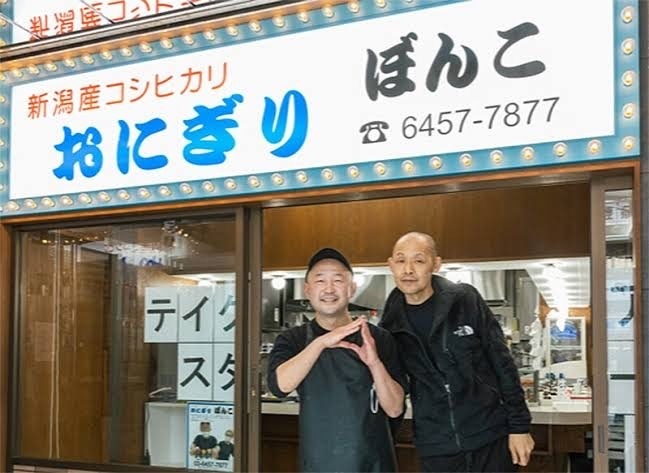
Hidefumi Honmyo, right, stands in front of onigiri rice ball shop Bonko in Shinjuku Ward, Tokyo.
In 2021, major U.S. sportswear retailer Foot Locker surprised not only the fashion industry but the wider business world when it took over Text Trading Co., which runs atmos, for $360 million (¥39.6 billion at the time). Considering that Text Trading’s annual sales in fiscal 2020 were about ¥19.2 billion, Foot Locker must have been thoroughly convinced of the potential of the company that had 39 shops in Japan and 10 shops overseas in 2021.
Honmyo started a small sneaker shop in the Ura Harajuku neighborhood in Tokyo with just ¥3 million in 1996. You could say his talent for sniffing out business opportunities is on par with Sazaby League.
Next on Honmyo’s list was apparently onigiri, a comfort food for so many Japanese people. Come to think of it, it’s only natural that onigiri, which costs around ¥300 each, has replaced ramen as the king of Japanese food for the masses when a ramen bowl can easily top ¥1,000. So now Honmyo, who minted a fortune in his Harajuku sneaker shop, has likely found himself a second bank of shiny coins in the restaurant world.
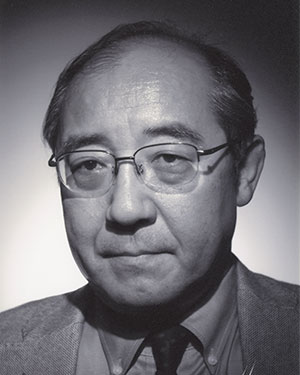
Akira Miura
Miura is a journalist and a former editor in chief of WWD Japan.
Top Articles in Culture
-

BTS to Hold Comeback Concert in Seoul on March 21; Popular Boy Band Releases New Album to Signal Return
-

Director Naomi Kawase’s New Film Explores Heart Transplants in Japan, Production Involved Real Patients, Families
-

‘Jujutsu Kaisen’ Voice Actor Junya Enoki Discusses Rapid Action Scenes in Season 3, Airing Now
-

Tokyo Exhibition Offers Inside Look at Impressionism; 70 of 100 Works on ‘Interiors’ by Monet, Others on Loan from Paris
-
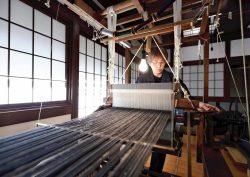
Traditional Japanese Silk Hakama Tradition Preserved by Sole Weaver in Sendai
JN ACCESS RANKING
-

Japan PM Takaichi’s Cabinet Resigns en Masse
-

Japan Institute to Use Domestic Commercial Optical Lattice Clock to Set Japan Standard Time
-

Israeli Ambassador to Japan Speaks about Japan’s Role in the Reconstruction of Gaza
-

Man Infected with Measles Reportedly Dined at Restaurant in Tokyo Station
-

Videos Plagiarized, Reposted with False Subtitles Claiming ‘Ryukyu Belongs to China’; Anti-China False Information Also Posted in Japan


